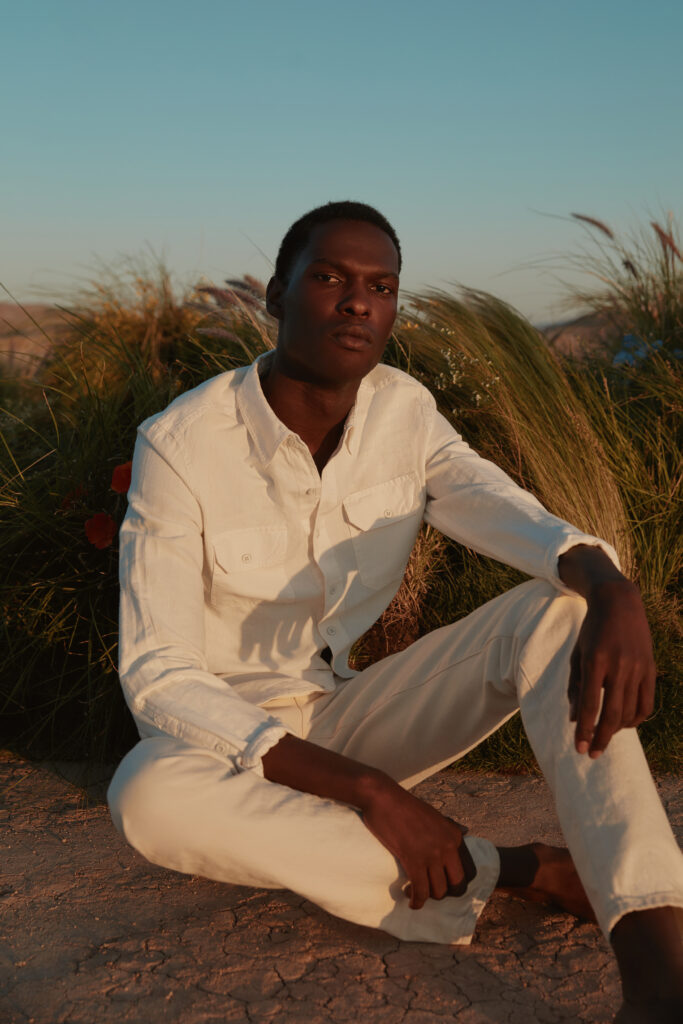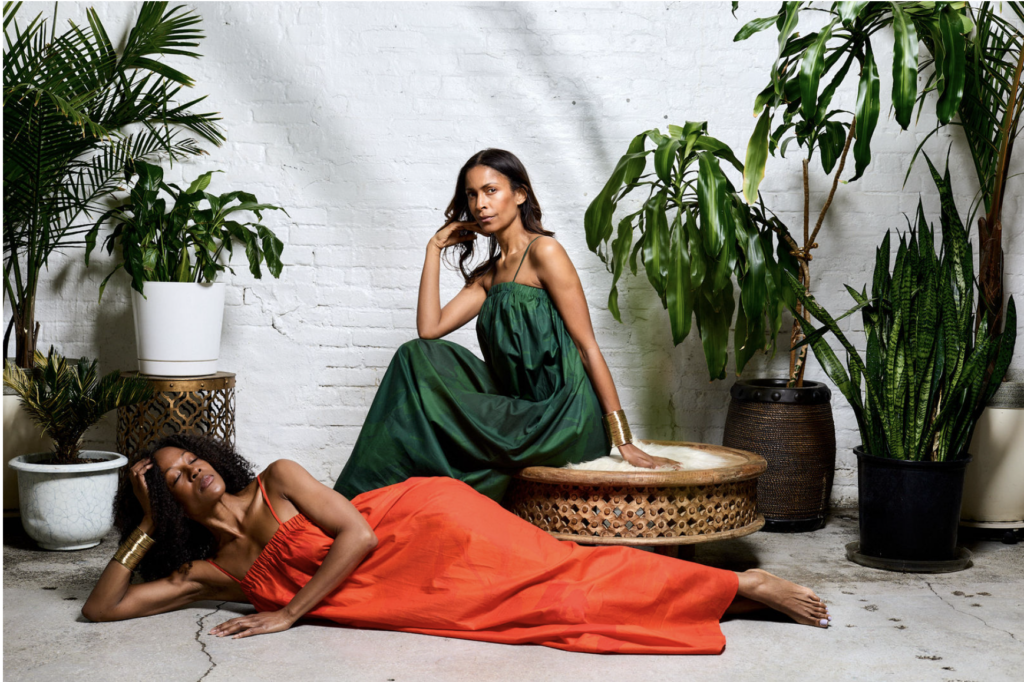By Brian Scott Lipton
The fashion business is synonymous with the here today/gone tomorrow “trends.” After all, do Nehru jackets, mood rings or culottes mean anything to you? One trend we will be talking about 20, 30 or 40 years from now, though, is sustainability!
First things first: What exactly is “sustainability?” Today, the term can take on a lot of meanings from using recycled, upcycled, ethically sourced and biodegradable materials to using less water in the production of a specific product (mostly denim) to wearing clothes originally from other’s people closets—or perhaps even your own.
In fact, when Oscar winner Cate Blanchett showed up at many film award ceremonies this year in couture outfits she had previously worn, there was a great deal of chatter about how she was embracing “sustainable fashion.”
Global red carpets aside, there’s little question that embracing sustainability has become a worldwide phenomenon. The Guggenheim Museum in Bilbao, Spain recently unveiled new uniforms by the brand Ecoalf that are made from recycled materials, including 100 percent recycled polyester jackets, 100 percent recycled cotton T-shirts and sweatshirts, footwear made from recycled polyester and polo shirts made from recycled cotton.
Meanwhile, national thrift shop Goodwill—a leader in selling recycled clothing—devoted its 2023 gala to the theme of sustainability and showcased one-of-a-kind upcycled designs by Todd Snyder, Willy Chavarria of Calvin Klein, Rinat Brodach, as well as Tommy Hilfiger’s adaptive team.
Or take former Project Runway contestant and FGI Rising Star Nancy Volpe Beringer who has become renowned for her sustainable adaptive fashion and has found great success with her online site, The Vault by Volpe Beringer, which minimizes ecological and social costs by extending and renewing the life of previously worn upscale garments. “I feel that I was provided the opportunity to become a fashion designer at age 61 for a specific reason, and that is not to create more fast fashion,” she says.

CONSCIOUS CONSUMERISM
Moreover, sustainable fashion has made leaps and bounds in recent years in so many categories—from jeans to cashmere sweaters to swimwear, underwear, shoes and jewelry—that it’s practically inescapable for those who care about it.
And, as experts agree, it’s the younger shoppers—those in the age 21-39 category—who absolutely do care about it (along with climate change and similar environmental issues) and who are the reason so many manufacturers are stressing their commitment to sustainability.
“I always remind people that even as a consumer, we have the power to change the world and create a better tomorrow by just being mindful of how and what we buy,” says Melissia Hill, founder of Ooshie, a Brooklyn-based company whose stylish women’s dresses and caftans are manufactured using biodegradable and organic fabrics.
At MABI Swimwear, a Brazilian-based company, all the tags on its suits are made from biodegradable fabrics, and the vivid colors on its apparel are created via natural dying and mineral salts. (Flowers, roots, and seeds are the main components of the prints, while local plants, spices, and vegetables provide the pigment.) “Sustainable can be sexy!” exclaims Maristela Soares, the company’s founder and head designer.

HEAD TO TOE
In 2023, one can wear sustainable products from head to toe. “Like so many companies, we value sustainability and sustainable fashion,” says Ayelet Lax Levy, president of the popular shoe manufacturer, Naot. “We have started incorporating environmentally friendly vegan materials into our shoes in order to lower our carbon emissions even further, and we are always looking for a better and more improved way to lower our environmental impact.”
Moral Code’s Ethical Living line of sneakers and accessories is also devoted to sustainability, including its new York Vegan model, which is made of apple leather, an eco-friendly alternative produced from waste by-products of the apple juice and jam industries, such as peels and fiber from the fruit. In addition, the company uses Olivenleder—a patented technology using fallen olive leaves that would otherwise go to waste—as its tanning agent in many of its accessories and shoes.
Other favorites include Gobi Cashmere’s pieces, which use ethically sourced, organic cashmere yarns that are left untreated with dyes to celebrate the raw beauty of the natural fiber; Con.Struct’s recently introduced Green Collection of casual clothing using recycled materials; luxury everyday basics from Bleusalt (a favorite of such celebrities as Alicia Silverstone, Cindy Crawford and previous Connecticut Voice cover subject Christian Siriano); Skyway’s “Rainier” backpack, which is constructed from reusable water bottles; and Filippo Loretti’s watches, which are crafted from recycled plastic from the ocean.
One can even show off jewelry maker Askari’s new “warrior pins,” which are made from cruelty free bio-leather, recycled silver, and lab grown diamonds that are produced using wind and solar power. “As citizens of planet Earth, it is our responsibility as individuals to do everything in our power to protect the planet from which we draw life and inspiration,” notes founder Marco Dal Maso.
Sustainable fashion doesn’t even have to be visible. Underwear giant Fruit of the Loom recently introduced its Threads Men’s Underwear Collection, which uses special viscose fibers that are made from certified renewable wood resources and produced through a sustainable process.

FOREVER IN BLUE JEANS
Perhaps no part of the fashion industry has been more devoted to sustainability than denim—in large part because of the outrageously large amount of water needed to grow the cotton that creates denim as well as its finishing, rinsing and dying procedures. It’s one reason it made headlines in 2021 when online visionary retailer Revolve partnered with Recover, a textile fiber producer, to launch a 14-item collection of jeans that were each made with at least 15 percent recycled cotton.
A longtime leader in the field, AG, is constantly updating its eco-friendly efforts. This spring, the company introduced a new edition of The Jean of Tomorrow, which is made with traceable organic cotton and finished with plant-based elements to ensure it is 100 percent biodegradable, as well as unveiling it new Vapor Wash technology which achieved a radically more sustainable process with 65 percent less water, 65 percent fewer chemicals, and 35 percent less energy than ever before.
Many other popular denim brands, including Levi’s, Wrangler, Lee, Devil-Dog and Liverpool take sustainability into account (at least in some of its products and manufacturing processes). “Sustainabilty is definitely important to us, even if it doesn’t always drive sales” says Mark D’Angelo, Liverpool’s vice president of men’s sales.
Adds Sean Connelly, vice president of Mens Merchandising & Sales for Devil-Dog Jeans: “In our factory, we are constantly reviewing our procedures for efficiency. If there is a more sustainable and environmentally friendly method available, we choose it. Examples of this are our use of solar power for electricity, reduction in unnecessary chemicals, recycling waste, and water treatment. As far as material choices, we have already switched dye methods for our denim fabrics where possible to liquid indigo dyes, which cut down on chemicals required to dye and wash our fabrics, as well as water consumption on garments.”
“Moreover, wherever possible we will use recycled cotton and polyester yarns—some made from empty soda bottles and plastic containers for our woven fabric,” he continues. “Our approach is not to make a sustainable brand, per se, as much as we try to make the best and most responsible choices we can as a company and create the kind of products our customers demand from us!”
Indeed, much like the love of George and Ira Gershwin’s classic song, sustainability is here to stay.








More Stories
Sizing Things Up
Good Dressers – Dressing For Good
LEATHER WEATHER